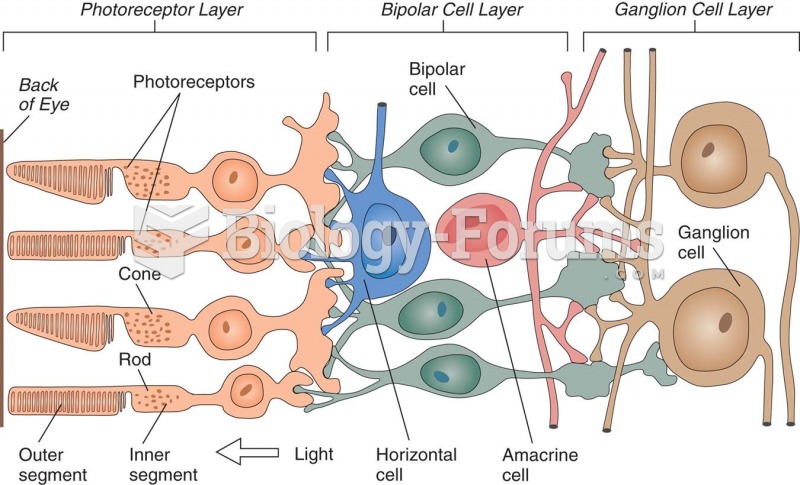|
|
|
Increased intake of vitamin D has been shown to reduce fractures up to 25% in older people.
On average, the stomach produces 2 L of hydrochloric acid per day.
For about 100 years, scientists thought that peptic ulcers were caused by stress, spicy food, and alcohol. Later, researchers added stomach acid to the list of causes and began treating ulcers with antacids. Now it is known that peptic ulcers are predominantly caused by Helicobacter pylori, a spiral-shaped bacterium that normally exist in the stomach.
Of the estimated 2 million heroin users in the United States, 600,000–800,000 are considered hardcore addicts. Heroin addiction is considered to be one of the hardest addictions to recover from.
Medication errors are more common among seriously ill patients than with those with minor conditions.







